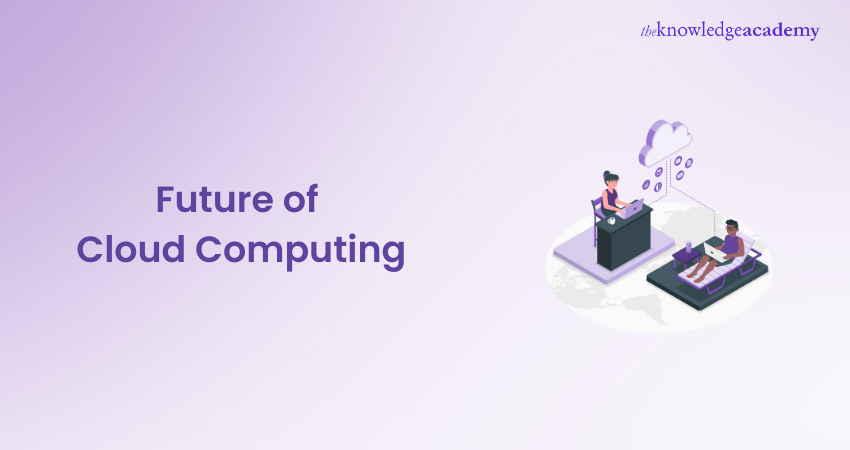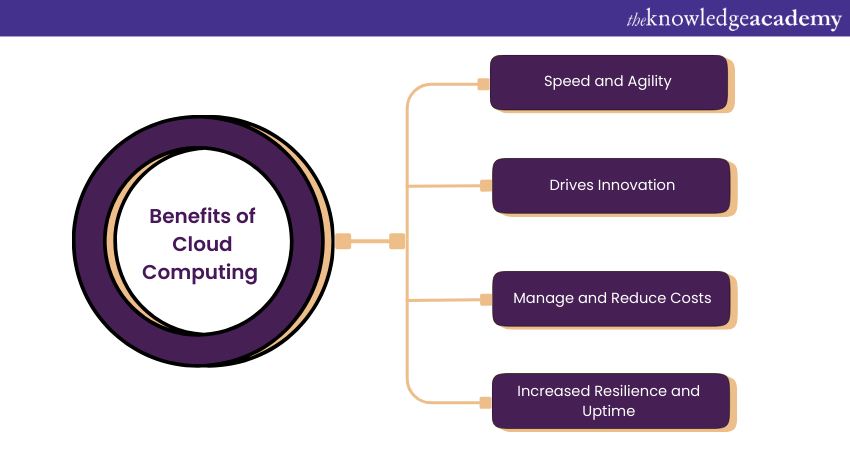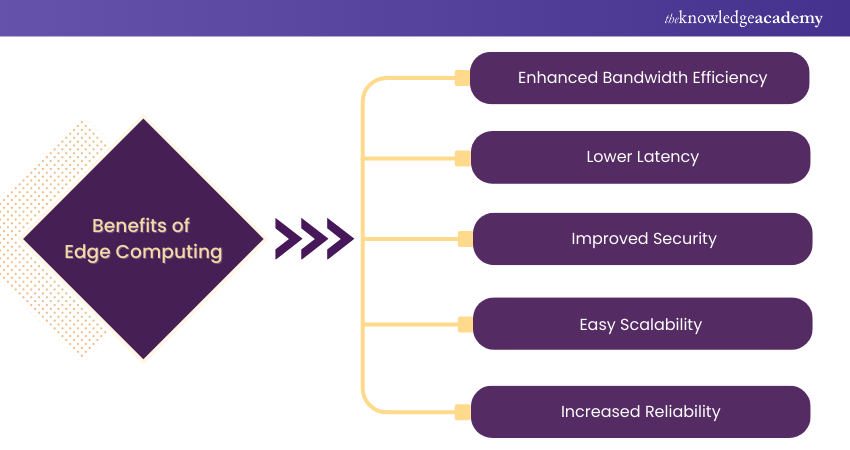We may not have the course you’re looking for. If you enquire or give us a call on +44 1344 203 999 and speak to our training experts, we may still be able to help with your training requirements.
We ensure quality, budget-alignment, and timely delivery by our expert instructors.

Cloud Computing has undergone remarkable changes since its inception and has become an indispensable force in the digital landscape. Although it’s only been around for a few decades, it has been adopted everywhere, and the Future of Cloud Computing looks very promising.
Based on the Statista reportCloud Computing generates over 328 billion GBP annually and is expected to grow more in the coming time. If you are interested in learning more about what the future holds for Cloud Computing, then read this blog till the end. Here you will learn about the history, benefits, and the Future of Cloud Computing. Let’s continue to learn more!
Table of Contents
1) The history of Cloud Computing
2) Benefits of Cloud Computing
3) Trends and predictions reshaping the Future of Cloud Computing
a) Hybrid Cloud
b) Increased storage capabilities
c) Internet of Things (IoT)
d) Edge Computing
e) Artificial Intelligence (AI)
f) Cloud orchestration
g) Secure Access Service Edge (SASE) adoption
h) Serverless Computing
i) Kubernetes
4) Conclusion
The history of Cloud Computing
The concept of Cloud Computing initially emerged in the 1950s. However,it was 1990s when internet growth laid the foundation for the modern Cloud. Salesforce is the company that introduced Cloud-based Software-as-a-Service (SaaS) in 1999, followed by Amazon Web Services (AWS) in 2002.
To popularise it further, Google Docs and Dropbox did the rest of the job.
The 2010s saw the rise of Platform-as-a-Service (PaaS) and Serverless Computing.
Today, Cloud Computing is used everywhere, from small businesses to large enterprises.
Benefits of Cloud Computing
From increased business uptime to reduced costs, implementing the Cloud in your business operations has many benefits. Let’s take a look at some of the Benefits of Cloud Computing:

1) Speed and Agility: Today’s business world is constantly evolving at a rapid pace. so, there’s huge pressure on the businesses to keep up. It can be highly challenging but crucial for success. Cloud Computing allows organisations to rapidly scale their computing resources in order to meet fluctuating demands. This lets businesses adapt quickly to changing market conditions, spikes in user traffic, or evolving project requirements.
2) Drives Innovation: Cloud Computing fosters innovation by providing businesses easy access to cutting-edge technologies and resources. It offers scalable and on-demand infrastructure, allowing organisations to experiment with new ideas and technologies without needing heavy upfront investments in hardware or software.
3) Manage and reduce costs: Cloud Computing offers cost-efficiency through pay-as-you-go pricing models. So, businesses no longer need to invest in and maintain expensive on-premises infrastructure. Instead, they can scale resources up or down as required while optimising costs.
4) Increased resilience and uptime: Cloud Computing enhances business resilience by providing redundant infrastructure and disaster recovery capabilities. Cloud providers distribute Data across multiple data centres; thus, helping in minimising the risk of losing data due to massive hardware failures or natural disasters. This redundancy ensures high availability and uptime for applications and services.
Harness the power of Cloud infrastructure with our Linux OpenStack Administration Training – Sign up now!
Trends and Predictions Shaping the Future of Cloud Computing
From increased storage capabilities to Hybrid Cloud, the future looks highly promising for Cloud Computing. Let’s look at the future trends and predictions that will reshape the Future of Cloud Computing:
1) Hybrid Cloud
As more users start to adopt Cloud Computing, there’s an increased demand for storage and security. Hybrid Cloud is one of the most popular Types of Cloud Computing both Public and Private Clouds can use it to create a reliable business infrastructure. Whether it's increased storage or security needs, a Hybrid Cloud can fulfil the needs of businesses of any size. It helps prevent outage of your services and ensure your business operations are executed without any disruptions. Due to these benefits, many businesses are starting to adopt Hybrid Cloud infrastructure, which will become a new norm in the future.
2) Increased Storage Capabilities
The number of people using the internet is growing exponentially, and so is their consumption of data. This leads to increased demand for Cloud storage, and the recent advancements in Cloud Computing make it effective and affordable for businesses to fulfil their storage needs.
3) Internet of Things (IoT)
IoT are devices with the ability to communicate with each other with no human intervention. Smartwatches, pacemakers, and autonomous vehicles are few of the great examples of IoT devices. Based on the Statista reportthe total number of IoT devices available worldwide will grow from 15 billion to 29 billion and the number will constantly expand by 2030. That’snearly double the growth in just over a decade. This drastic improvement will lead to an overwhelming demand for storage and thereby result in increased adoption of Cloud services.
4) Edge Computing
There are multiple benefits of using the Cloud for your business operations. At the same time, it is best to use it in combination with other infrastructure. It is a double-edged sword that should be treated cautiously as a single disruption could halt your business operations. That’s where Edge Computing comes in to save the day.

Whether you are a gamer who plays competitive games online or a business professional who often attends important business calls, you might have faced disruptions and delays in your online activities. This is primarily due to high latency rates. Edge Computing processes data locally, reduces latency, and enhances the performance of latency-sensitive applications.
This is especially crucial for IoT Devices, autonomous vehicles, and Augmented Reality (AR) experiences. Cloud providers are extending their infrastructure to the edge, establishing micro-data centres in various locations.
5) Artificial Intelligence (AI)
The Future of Cloud Computing is deeply connected with Artificial Intelligence. Cloud Computing platforms support the computational power and scalability needed for AI model training and deployment. In such a case, AI drives data-driven decision-making, process automation, and creating personalised User Experiences (UX) across industries.
Accessible AI services will help developers seamlessly integrate AI capabilities into their applications. Furthermore, AI will play a significant role in increasing Cloud Computing Security by detecting and reducing real-time threats. as both technologies continue to evolve, they will lead the way in delivering innovations across various sectors.
6) Cloud Orchestration
The management of complex Multi-Cloud environments is a huge challenge for many organisations. Cloud orchestrationan automated and coordinated approach, helps in handling tasks across multiple Cloud services. These orchestration tools and platforms simplify resource provisioning, scaling, and monitoring. This results in optimised Cloud resource usage and reduces operational complexities.
Moreover, they enhance security by enforcing consistent policies across diverse Cloud environments. The Future of Cloud Computing will see a surge in the adoption of orchestration solutions. This will help businesses to manage their Cloud resources efficiently, streamline processes, and focus on innovation rather than operational tasks.
Embrace the Cloud and revolutionise your career with our Cloud Computing Training – Sign up now!
7) Secure Access Service Edge (SASE) adoption
Secure Access Service Edge (SASE) represents a transformative approach to network and security architecture. As, traditional networking and security models become insufficient to meet the recent Cloud adoption increase, SASE unifies networking and security capabilities into a single Cloud-based service. In addition, it helps to deliver secure remote access and consistent policies across the organisation.
This further simplifies network management, enhances security, and ensures uniform policies—particularly vital for remote workforces.
As remote work continues to be a predominant trend, SASE adoption will be a critical component of Cloud Computing strategies, which will guarantee secure access to Cloud resources from anywhere while maintaining robust security.
8) Serverless Computing
Serverless Computing (also called Function as a Service),helps streamline application development and deployment within the Cloud. It also empowers developers to concentrate solely on coding, devoid of concerns about server provisioning or infrastructure management. The Cloud provider automatically manages underlying infrastructure, dynamically scaling resources as required. This streamlined approach has the following benefits:
1) Boosts developer productivity
2) Reduces costs
3) Accelerates time-to-market for applications
Serverless Computing is expected to gain even more popularity in the future as businesses look for cost-efficiency, scalability, and rapid development cycles. Developers will increasingly utilise serverless platforms to create a variety of applications, from microservices to event-driven functions. This further helps in reshaping the Cloud Computing landscape.
9) Kubernetes
Kubernetes isan open-source container orchestration platform that has continues to be a driving force behind Cloud-native technology adoption. It simplifies the deployment, scaling, and management of containerised applications, making them more portable and resilient. also empowers organisations to embrace microservices architecture, promoting agility and scalability.
With Cloud providers offering managed Kubernetes services, businesses are migrating more workloads to containers. Kubernetes also plays a pivotal role in hybrid and multi-cloud strategies, facilitating workload portability across various Cloud environments. In the coming days, Kubernetes will remain a cornerstone of Cloud Computing, supporting the development of modern, containerised applications and enabling efficient resource management.
Conclusion
We hope you found this information about Future of Cloud Computing informative and meaningful.
The future looks highly promising for Cloud Computing. It has opened a diverse range of possibilities, from Hybrid Clouds to increased innovations. So, let's embrace and adapt the Cloud with open arms and Continue our journey toward success!
Unlock the endless potential of Cloud Computing with our Cloud Computing Courses – Sign up now!
Frequently Asked Questions

Indeed, Cloud computing is a great career choice today. In fact, there is an increasing demand for these professionals. Many companies are switching to cloud-based systems, opening lucrative opportunities for cloud architecture, deployment, and management experts.

No, Cloud computing is not hard unless you have the requisite skills and expertise. Therefore, it is advisable to gain a strong foundation in this swiftly advancing technology through esteemed courses.

The Knowledge Academy takes global learning to new heights, offering over 30,000 online courses across 490+ locations in 220 countries. This expansive reach ensures accessibility and convenience for learners worldwide.
Alongside our diverse Online Course Catalogue, encompassing 17 major categories, we go the extra mile by providing a plethora of free educational Online Resources like News updates, Blogs, videos, webinars, and interview questions. Tailoring learning experiences further, professionals can maximise value with customisable Course Bundles of TKA.

The Knowledge Academy’s Knowledge Pass, a prepaid voucher, adds another layer of flexibility, allowing course bookings over a 12-month period. Join us on a journey where education knows no bounds.

The Knowledge Academy offers various Cloud Computing Courses, including the Cloud Computing Training and Linux OpenStack Administration Trainings. These courses cater to different skill levels, providing comprehensive insights into Google Cloud Engineer Job Description.
Our Cloud Computing Blogs cover a range of topics related to Cloud Computing Training, offering valuable resources, best practices, and industry insights. Whether you are a beginner or looking to advance your Cloud Computing skills, The Knowledge Academy's diverse courses and informative blogs have got you covered.
Upcoming Cloud Computing Resources Batches & Dates
Date
 Cloud Computing Training
Cloud Computing Training
Thu 23rd Jan 2025
Thu 10th Apr 2025
Thu 15th May 2025
Thu 17th Jul 2025
Thu 4th Sep 2025
Thu 13th Nov 2025







 Top Rated Course
Top Rated Course



 If you wish to make any changes to your course, please
If you wish to make any changes to your course, please


